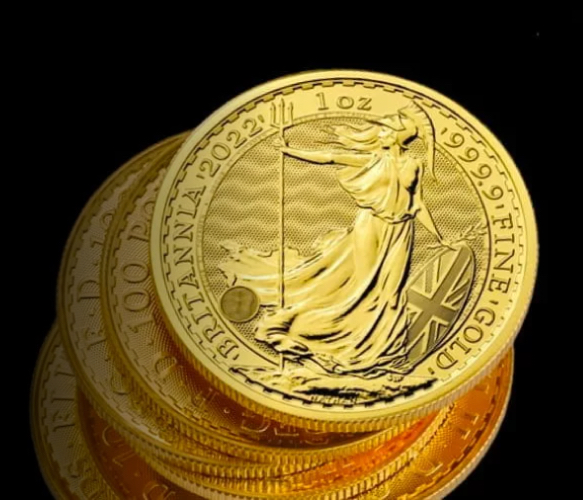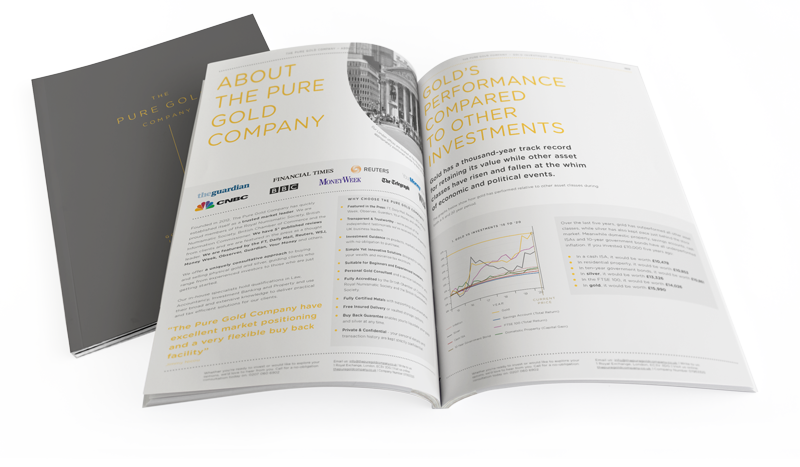For centuries, people storing their wealth in the form of gold have been squirrelling it away in stashes all over the world.
Often, these stashes are forgotten about. For example, dementia patients whose houses are sold when they die, people who’ve buried their gold and subsequently lost it or old family heirlooms that get forgotten about and re-sold. Gold has been found in all kinds of places: the town of Scunthorpe held a treasure hunt in February, hiding five gold objects worth £1000 apiece, while others have found gold hidden in attics, boxes of heirlooms, buried underground or amongst war memorabilia.
The upshot of all of this is that you might own some physical gold without even knowing about it. While we’re not suggesting that you tear everything apart just to look, and this sort of thing certainly isn’t common enough that you can rely on it, “windfall gold” is still a recognisable source of income.
Windfall gold
Some gold windfalls are totally unexpected, like the piano full of gold coins found in Shropshire in January. The items, which were not described to prevent fraudulent claims, were up to 110 years old and were described as a “potential treasure”.
It should be noted that in this case as in others, the onus is on those who found the coins to try and trace their true owners. Sadly, even when the found gold is inside something you’ve bought freely, it has to be traced to its original owner and may end up as the property of the Crown. The Treasure Act applies to all finders of gold and silver objects (and some coins) over 300 years old, giving them a legal obligation to report such items to the authorities within 14 days.
This doesn’t apply to items found at sea, which have different rules. All discovered shipwrecks must be reported to the Receiver of Wreck. The definition of “treasure” is complex and specific – if you think you’ve got something valuable on your hands, it’s best to check it thoroughly to make sure.
A legal matter
Once you’ve reported your treasure, it becomes a legal matter. The local Finds Liaison Officer (FLO) will help identify the find, and report to the Coroner (and the Treasure section at the British Museum) who will issue it a reference number. They’ll need to know the place the treasure was found, the date of find, contact details from the finders and from the owners/occupiers of the land it was found on.
The coroner will issue a report valuing the treasure and cataloguing it, which is the point where the actual windfall tends to occur – after an inquest to determine who (if anyone) the treasure belongs to, the objects will be valued. If the treasure is being bought by a museum they’ll pay for it.
If all goes well, you may well receive a reward for your find, which can be a considerable portion of the value (there are consequences for not reporting it properly, so it’s safest to do things by the book).
If your find doesn’t qualify as ‘treasure’ and ownership can’t be established, you may well still be splitting the proceeds 50/50 with the landowner, if it was found on someone else’s land.
If it transpires that the find is yours to sell you could find yourself sitting on a sizeable profit. As most forms of gold treasure will be artefacts, jewellery or coins, donating or selling them to a museum is often the best call. If your find consists of UK gold coins deemed as legal tender, you may be able to sell them exempt from the Capital Gains tax, as they are viewed as legitimate currency.
Making your own luck
Finding a hidden stash of gold is still, sadly, incredibly unlikely, and it’s less likely still that you’ll be able to keep all of it as a viable investment. Still, there are ways to profit off windfall finds, and you never know – you might get lucky.
Or you can make your own luck. Back in June 2016, a retired engineer and The Pure Gold Company client named Ron buried £850,000 in gold bars in his back garden, plotting coordinates and making 18 copies of a map to lead his grandchildren to it.
Each of his family members now has a copy, as well as his lawyer, and they’ll have a share in his wealth. His plan was to have a reserve of wealth to hedge against another potential financial crisis, and he’s stored in a way that guarantees a windfall at some point in the future.
If you’re looking to make your own luck for yourself or your descendants, consider investing in physical gold from The Pure Gold Company. Our delivery service is customisable enough that we even managed to deliver on sunny days so Ron could bury his treasure himself.


